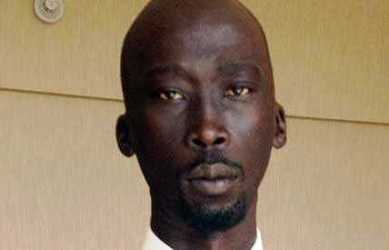South Sudan armed opposition says no civilians targeting policy
October 11, 2016 (JUBA) – A senior member in the leadership of the armed opposition faction of the Sudan People’s Liberation Movement (SPLM-IO) led by the former First Vice President, Riek Machar, has issued a statement distancing itself from roadside attacks in Equatoria region, saying it has no policy targeting innocent civilians.

“The SPLM (IO) has no policy of killing civilians. This alarming situation should be investigated and the criminals held accountable,” Mabior said.
Mabior was reacting to reports of roadside ambush attacks on Juba –Yei road in which up to 21 civilians traveling in commercial vehicles fell into ambush attack by gunmen over the weekend.
The incident, which targeted members of the Dinka ethnic group of President Salva Kiir, took place on Saturday morning in Ganyi, an area between Lainya and Juba. The vehicles were carrying more than 200 civilians, mostly women and children.
The identity of the group was not immediately identified and no group had come out to claim the responsibility. The attack attracted mixed reactions from stakeholders and actors.
Government officials and military officers condemned the attack and blamed dissident armed youth in the area suspected to be loyal to politicians allied to the former first vice president, Riek Machar, for carrying out the attack. They also called for regional support to designate the unidentified group as “terrorists” and to deny their leader safe haven in the countries in the region.
United Nations had earlier called on all parties in the conflict to refrain from further violence and ensure that their respective army commanders control their forces and protect civilians and their property and to cease all hostilities.
Leading civil society leaders in Juba warned that the Yei-Juba road ambush could worsen the security situation in the country. Others attributed the renewed civil war to lack of progress in the implementation of the peace agreement signed in August last year between President Kiir and his former deputy, Machar.
“The implementation of the peace agreement is very slow especially key provisions that talk about reforms, and the issue of unified army, and also the dialogue with armed groups that are still in the bushes whether under [the] command of Riek Machar or those who are unknown in Equatoria, so the dialogue with them is very weak,” observed civil society leaders.
The violence erupted again on 8 July when rival forces clashed at the Republican Palace, plunging back the country into another civil war.
(ST)
